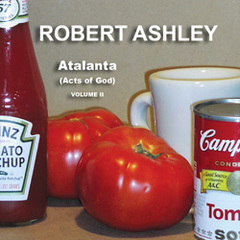This unparaphraseable self-dialogue from Atalanta illustrates something of what I love so much about Robert Ashley’s music:
I said, “Is the struggle with the law manifested in every
aspect of the making of music, or are there law-abiding aspects and others that
are confrontational only because of indiscretion on the musician’s part –
because of a transgression?”
He said to me, “Music is the enactment of the manifestation
of the struggle with the law on a scale of continuous attempts; that is, where
the attempts are related to each other symbolically through a pattern imposed
on our memory. Music is a history of our struggle with the law.”
I said, “Can music, then, substitute itself for the
enactment of the struggle in other parts of our lives?”
He said to me, “That is its most common use.”
I said, “The musician, then, becomes socially symbolic,
enacting restlessness.”
He said to me, “Yes. In order to be law-abiding, there has
to be a place where one can rest. One can be law-abiding only in safety from
the law.”
I said, “Is the listener different from the musician?”
He said to me, “Yes, that is the paradox of music. In
listening to music we are observing other persons like ourselves, but the
consequences of their actions do not accrue to us actually. Their actions are
understood only in retrospect. The consequences may accrue to us as wisdom. May
even endanger our relationship to the law, may change our minds, but for the
listener the act has already come into existence before the law is recognized.
The listener is in safety from the law.”
UPDATE: Notice how subtly and beautifully it nuances the tone that he uses “He said to me” rather than simply, “He said.” The man’s a frickin’ poet.

